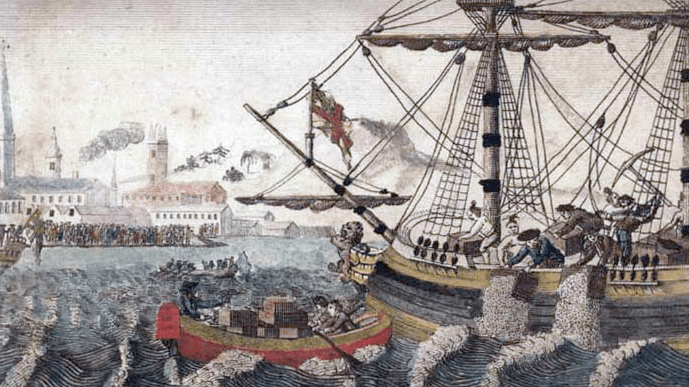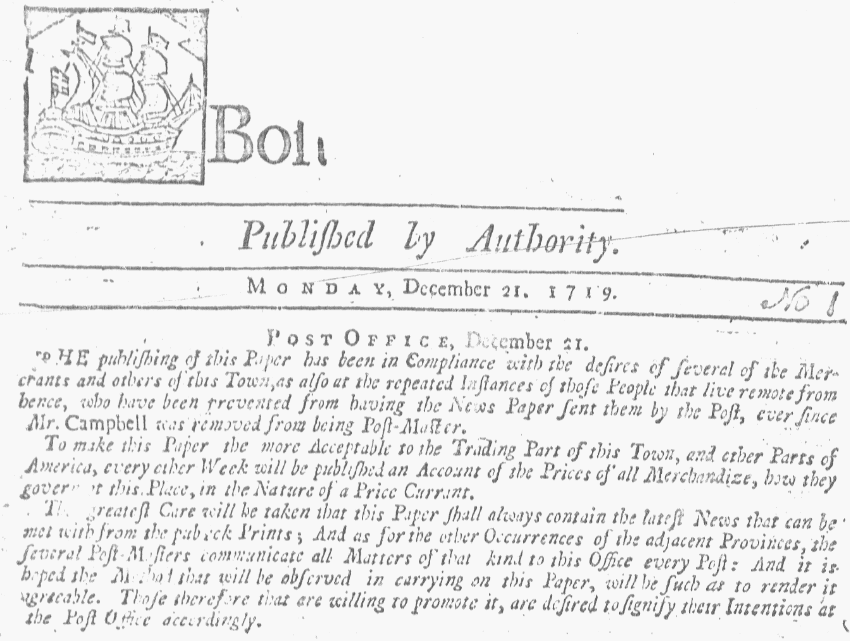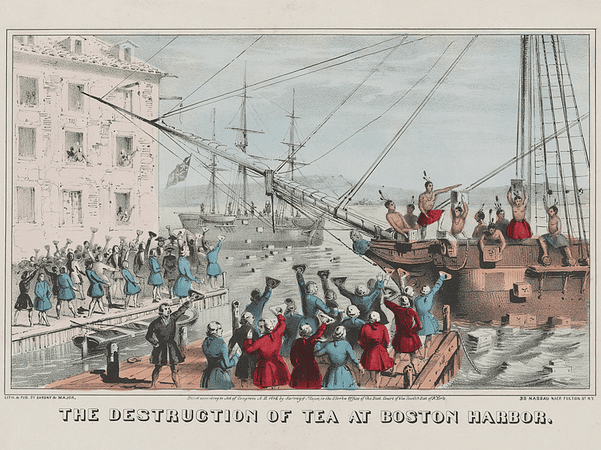Introduction: In this article, Mary Harrell-Sesniak continues her series examining our earliest newspapers by focusing on one of the first and most important newspapers in American history: the “Boston Gazette.” Mary is a genealogist, author and editor with a strong technology background.
As discussed in Part I (see Iconic First Editions of American Newspapers, Part I), early American newspapers provide a special insight into the lives of our ancestors. As a reminder, the few newspapers that existed during the Colonial period required permission from Crown representatives to start publishing. One of the most important newspapers was allowed to begin in 1719: the Boston Gazette.

Boston Gazette
The Boston Gazette was produced and printed by Benjamin Edes and John Gill, beginning on 21 December 1719 in Boston, Massachusetts. Many describe this paper as the most influential early American newspaper, so you may wish to put it on your radar. (Note: there was another Boston Gazette, published 1806-1816, which was not related.)

Edes promised to publish in his newspaper the prices of all merchandise and to report the latest news. It was recommended that those who were willing to promote the Boston Gazette “are desired to signify their Intentions at the Post Office accordingly.” This notice explains part of the motive, particularly as it relates to the mail:
“THE publishing of this Paper has been in Compliance with the desires of several of the Merchants and others of this Town, as also at the repeated Instances of those People that live remote from hence, who have been prevented from having the News Paper sent them by the Post, even since Mr. Campbell was removed from being Post-Master.”
Boston Tea Party
The Boston Gazette is known for its part in the Boston Tea Party.
On 16 December 1773, the participants met at the home of Benjamin Edes and some used his Gazette office at the corner of Court Street and Franklin Avenue to dress as native Americans before dumping the tea into Boston Harbor. The first announcement of the event appeared in this paper on 20 December:
“The people… DISSOLVED their meeting. But, BEHOLD what followed! A number of brave & resolute men, determined to do all in their power to save their country from the ruin which their enemies had plotted, in less than four hours, emptied every chest of tea on board the three ships commanded by the captains Hall, Brucey and Coffin, amounting to 342 chests, into the sea !! without the least damage done to the ships or any other property.”
Mr. Edes’ Farewell Address
When Benjamin Edes discontinued his paper in 1798, his “farewell address” urged readers to “strive to maintain the REPUBLICAN PRINCIPLES of their own Constitution” and ended with this goodbye:
“And now my Fellow-Citizens, I bid you FAREWELL – maintain your VIRTUE – cherish your LIBERTIES – and may THE ALMIGHTY protect and defend you.
–B. EDES.”
American Revolutionary War Research
If you’re looking for evidence of your ancestor’s participation in the American Revolution, or want to read the history firsthand, the Boston Gazette is an important newspaper to explore. I suspect you’ll find hints of the Tea Party participants, even if they have never been identified publicly.
Genealogy Tip: During the 18th century, you’ll find names presented in a variety of formats, so vary your queries. For example, Benjamin Edes signed his farewell letter as B. Edes. In other cases, you will find a full name or one might be abbreviated with a title, such as Mr. Revere.
Note: An online collection of newspapers, such as GenealogyBank’s Historical Newspaper Archives, is not only a great way to learn about the lives of your ancestors – the old newspaper articles also help you understand American history and the times your ancestors lived in, and the news they talked about and read in their local papers. Have you traced your family back to Colonial or Revolutionary America? Please share your stories with us in the comments section.
Related Articles:
- Iconic First Editions of American Newspapers, Part I
- Cherokee Phoenix, the First Native American Newspaper
- Genealogy Discoveries: A Look into John Brown Russwurm’s Life
Boston Tea Party:
